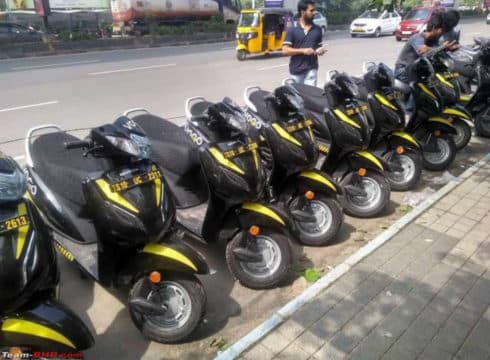A similar tranche had come in November 2019 from Matrix and Stellaris
The company has been in talks to raise its Series C funding
Vogo has been backed by Ola for its electric and two-wheeler plans
Inc42 Daily Brief
Stay Ahead With Daily News & Analysis on India’s Tech & Startup Economy
Bengaluru-based two-wheeler rental platform Vogo has raised yet another tranche of its bridge Series C funding round.
According to the Ministry of Corporate Affairs filings accessed by Inc42, the company in December 2019 and January 2020 received INR 14.36 Cr in Series C bridge funding from existing investors Kalaari Capital and Matrix Partners.
The filings showed that as per agreements signed earlier, the company offered preference shares at a nominal value of INR 100 with a premium of INR 8798 per share. Both Kalaari and Matrix have invested INR 7.18 Cr for 8074 shares each.
A similar tranche had come in November 2019, where Vogo received a fresh infusion of INR 21.2 Cr funding from Stellaris Venture Partners and Matrix Partners. The company had signed an agreement in a meeting on October 15 and floated a private placement offer to raise INR 17.69 Cr in Series C1 bridge CCPS and INR 10.61 Cr via CCDs from Kalaari Capital, Matrix Partners and Stellaris Venture Partners.
The fresh infusion seems to be the part of a similar round. Vogo has raised $120.6 Mn in funding prior to this round. Recently, reports surfaced that Vogo has closed Series C funding with around $35 Mn led by Lightstone Aspada along with participation from existing investors. This hasn’t been confirmed by the company yet.
Founded in 2016 by Anand Ayyadurai, Padmanabhan Balakrishnan, and Sanchit Mittal, Vogo offers commuters round-the-clock scooter rental services. It claims to have completed over 5 Mn trips on its platform from more than 1Mn riders with a total mileage of over 30 Mn kilometres.
Inc42 had reported that in the financial year ending March 2019, the company has grown its expenses 94X with barely 2x growth in its revenues. The company filings show that Vogo reported a loss of INR 39.2 Cr in FY19, a 10.8x increase from INR 3.3 Cr in FY18. The losses are 5.6x the company’s total income of INR 6.98 Cr.
Notably, the Y-o-Y increase in income is 2.63x, from INR 1.92 Cr in FY18.
According to a report by Quartz, most bike-taxi startups launched in recent years shut shop before turning a year old. This includes Dot, TuWheelz, Rideji, Headlyt, Heybob, and Zingo. Interestingly, India leads the world in the bike and scooter rental market in terms of fleet size. According to a study by German EV manufacturer Unu, the fleet size of bike-rental apps in India is now over 15K vehicles, which is higher than the more developed economies of the US and other Western countries.
And while the investments in bike-taxi startups in the past year indicate that at the moment, investors don’t seem to mind the high expenses, Vogo’s financials prove that profitability is not only elusive but a long shot for India’s bike-rental startups.
{{#name}}{{name}}{{/name}}{{^name}}-{{/name}}
{{#description}}{{description}}...{{/description}}{{^description}}-{{/description}}
Note: We at Inc42 take our ethics very seriously. More information about it can be found here.


